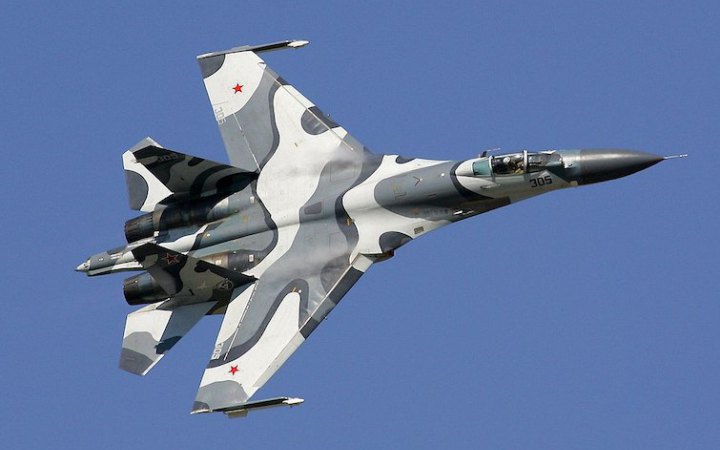The shooting down of a British plane over the Black Sea in September 2022 was deliberate, not accidental, as Russia claimed. A Russian pilot tried to shoot down an RAF surveillance plane after believing he had permission to fire, the BBC has learned, citing sources.
The pilot fired two missiles, the first of which missed rather than malfunctioned as claimed at the time.
Russia had claimed the incident last September was caused by a "technical malfunction". The UK's Ministry of Defence (MoD) publicly accepted the Russian explanation.
"But now three senior Western defence sources with knowledge of the incident have told the BBC that Russian communications intercepted by the RAF RC-135 Rivet Joint aircraft give a very different account from the official version. The RAF plane - with a crew of up to 30 - was flying a surveillance mission over the Black Sea in international airspace on 29 September last year when it encountered two Russian SU-27 fighter jets," the journalists said.
The intercepted communications show that one of the Russian pilots thought he had been given permission to target the British aircraft, following an ambiguous command from a Russian ground station. However, the second Russian pilot did not. He remonstrated and swore at his wingman when he fired the first missile.
"Our intent has always been to protect the safety of our operations, avoid unnecessary escalation and inform the public and international community," a spokesman for the British Ministry of Defence commented on the data.
Journalists noted as the two Russian SU-27s approached the RAF spy plane, they received a communication from their ground station controller. One western source told the BBC the words they received were to the effect of "you have the target".
This ambiguous language was interpreted by one of the Russian pilots as permission to fire.
Sources said that the loose language appears to have shown a high degree of unprofessionalism by those involved, sources said. In contrast, Nato pilots use very precise language when asking for and receiving permission to fire. The Russian pilot released an air-to-air missile, which successfully launched but failed to lock on to its target, the BBC has been told. It was a miss, not a malfunction.
Defence sources have told the BBC that a row then broke out between the two Russian pilots.
The pilot of the second SU-27 did not think they had been given permission to fire. He is said to have sworn at his comrade, effectively asking him what he thought he was doing. Yet the first pilot still released another missile. We had been told that the second missile simply fell from the wing - suggesting the weapon either malfunctioned or that the launch was aborted.
Three weeks later, the UK government confirmed the incident had taken place - after an explanation from the Russian Ministry of Defence called it a "technical malfunction." In a statement to MPs on 20 October, the then Defence Secretary Ben Wallace called it a "potentially dangerous engagement". But he accepted the Russian explanation, saying: "We do not consider this incident to constitute a deliberate escalation on the part of the Russians, and our analysis concurs that it was due to a malfunction."
However, a secret intelligence leak revealed that the US military spoke of what happened in more stark terms. In a raft of documents, published online by US airman Jack Teixera, the same incident was described as "a near shoot-down".
Journalists see several reasons for keeping information about the shooting at the plane secret. First, the UK would not want to publicise the extent of its intelligence gathering and details of the intercepted communications.
More importantly neither side wanted an escalation - one which could potentially draw a Nato member into military confrontation with Russia.
This is not the only incident with Russia and NATO countries. In March 2023, a Russian fighter jet collided with a US surveillance drone over the Black Sea. This forced the United States to shoot down the drone.
In May, a Polish plane patrolling the Black Sea near the Romanian coast as part of the EU's Frontex mission narrowly avoided a collision with a Russian fighter jet.








